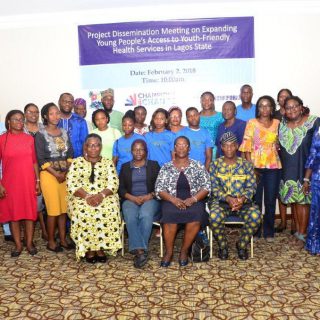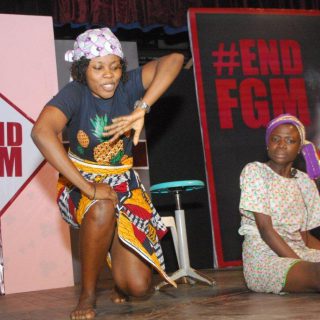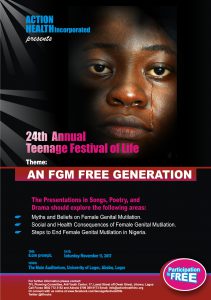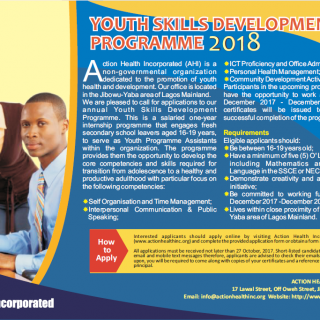Principals from 30 secondary schools in the Somolu Local Government Education District of Lagos State, participated at the seminar on Managing Adolescent Sexual Health and Development, organised by Action Health Incorporated, in Lagos last May. The seminar was aimed at getting principals to reflect on the enormity of problems associated with puberty and sexual development among their students, and to come up with the creative ways of addressing the issues at stake.
Participants were confronted with the hard facts about the status of adolescent health in Nigeria, and this served as stimulus for the seminar proceedings.
During his presentation, Dr Peer Omoluabi of the Psychology Department, University of Lagos, admitted that adolescent sexuality had always been regarded a taboo – something nobody should talk about in the open. He wondered why because “sexuality is an issue that is universal and pervades society”. He buttressed his universality concept with results of a recent research conducted in the University of Lagos, which focused on the content of graffiti on campus. The study showed that 70% of all graffiti on campus carried sexually related messages followed by political themes, indicating the priority student’s accord to sexual issues.
He asserted that sexuality education should take the form of enlightening adolescents about the inevitable changes that will take place in their bodies as they grow up and it should not overlook equipping them with skills for responding positively to those changes.
Although the principals in attendance were unanimous about the need to provide sexuality education in schools, they expressed their expressed their incompetence to do it, saying, “We did not receive sexuality education in our own time”. Nonetheless, the seminar recognized that managing adolescent reproductive health and development is the joint responsibility of the family, community, schools authorities, government, religious organizations and appropriate non-governmental organizations.
As a first step to reducing adolescent health problems in schools and society, participants at the seminar advocated approval of guidelines for sexuality education from which appropriate curricula can be adopted. It also agreed that sexuality education should not be restricted to biology and integrated science subjects. Dramas, debates and the mass media should also be used to convey these messages.
While looking at the issue of in-school girls who get pregnant, participants were of the opinion that everything should be done to help them. They commended the practice in some states, where special schools are created for pregnant girls, and urged school authorities to encourage organizations that promote adolescent reproductive health and development to work in their schools.
On the role of government in this regard, participants called for the provision of an enabling environment for the management of adolescent reproductive health and development, especially by incorporating sexuality education into school curricula and making it part of the Family Support Programme.
The Somolu Local Education Administrator, Mrs. E. Oshinkalu, in her message, charged the principals to sharpen their skills to help them become better managers of their students’ health. She praised the efforts of Action Health towards the development of youth health in the district, urging the organization to expand its work to other parts of Lagos State. Participants left the seminar better informed and resolved to be committed to promoting adolescent sexual health in their respective schools.







You must be logged in to post a comment.